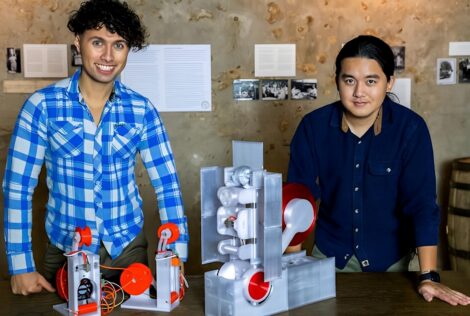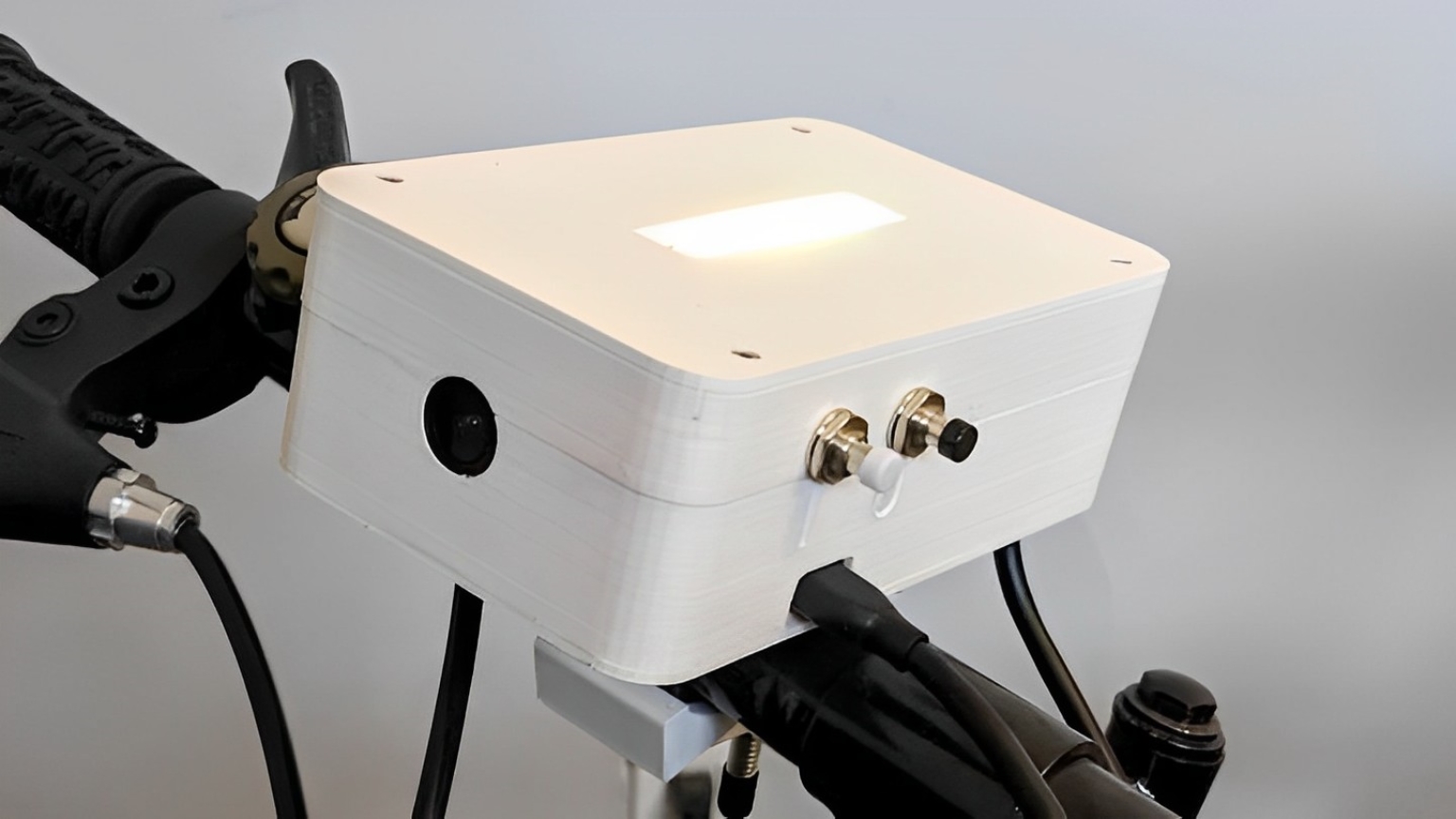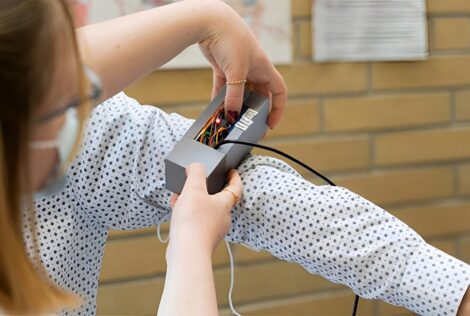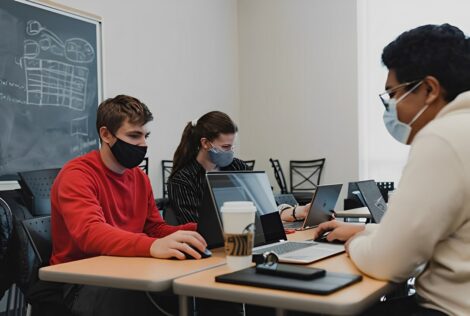

After Manny Lemos was hit by a car while cycling, he and his peers were motivated to use a final-year McMaster Engineering design project to try to make streets safer.
Lemos, Aaron Li and Amos Yu – then Mechatronics students – all had “close calls” on bikes, which they relied on to commute to and from campus.
Despite cycling’s growing popularity as an eco-friendly mode of transportation, many roads aren’t designed with cyclists in mind. The team’s invention, Cyclops Ride Assist, aims to improve the safety of all who share the road and was recently named runner up for the 2023 National James Dyson Award.
Advanced safety for cyclists
Cyclops Ride Assist is a multifunctional system that brings advanced car safety features into the world of cycling. It incorporates blind spot and crash detection, and video and data recording into a single, battery-operated portable unit that can be attached to handlebars of a bike.
The goal of this project was to find a way to make the streets safer for everyone, especially for cyclists who are the most vulnerable to life-threatening injuries in accidents.
The name ‘Cyclops’ came to the team not only for its close association with the spelling of the world “cycling”, but also from an interest in the one-eyed Cyclops characters from Greek mythology and X-Men. “Cyclops Ride Assistant’s main purpose is to capture video and information, like an all-seeing eye,” explains Li.
Cyclops Ride Assist offers advanced features to keep cyclists safe by using Light Detection and Ranging (LiDAR) technology, a remote sensing method that accurately measures distance between surrounding objects. This feature allows for Cyclops to measure and record the distance between the bike being ridden and any oncoming objects such as cars, street signs or curbs. The product also has an LED light strip that illuminates to alert cyclists to vehicles approaching from behind.
It also has a sophisticated crash detection system that analyzes acceleration data to identify accidents. In the event of a crash, the system automatically saves 60 seconds of front-facing camera footage and other data, which can be used for insurance claims, legal disputes and safety analysis. Additionally, it records video and data throughout rides for enhanced safety and ride analysis.
An unexpected national recognition
The trio’s hard work didn’t go unnoticed. In September, they were announced as the runner ups for the Canadian James Dyson Award, a national competition recognizing young inventors and their innovative solutions to real-world problems.
“It’s truly a great honor, and we were all pleasantly surprised and extremely happy that our work exceeded its initial purpose,” says Li. “Initially, it was a class project, but we poured our heart and soul into it. Being recognized beyond a simple grade feels incredibly rewarding and is a tremendous honour.”
Capstone experience fosters innovation
The origin of Cyclops Ride Assist was a McMaster classroom in September of 2022. Years of course work and experiential learning culminates in the application of engineering solutions to address real world issues in the form of a Capstone Project.
Creating a project like this where we could make something tangible that interacts with the environment was rewarding. We used our skills to drive design decisions that would have real world impact.
Eight months of work as a team with mentorship from Mac Eng professors led Lemos, Li and Yu to the final presentation expo in April where hundreds of students across the Faculty gathered at the David Braley Athletic Centre on campus to showcase their hard work. The team was awarded co-winners of the Best Video Award at the event.
The experiential learning model that supports student’s exploration of real-world engineering applications is part of McMaster Engineering’s reimagined engineering education curriculum known as The Pivot.
Future plans
Looking ahead, the Cyclops Ride Assist team aims to refine the design and lower the costs of manufacturing their product to bring it to market. Their strategy includes using different computer parts to reduce cost and power consumption while making their device more compact.
Additionally, Cyclops continues to work on their crash detection system algorithm while also focusing on improving the device durability, making it more impact and water resistant.
The team hopes to collaborate with a custom manufacturing service to start injection molding plastic parts in the future, all to ensure that Cyclops is ready to make cycling safer, one bike at a time.


